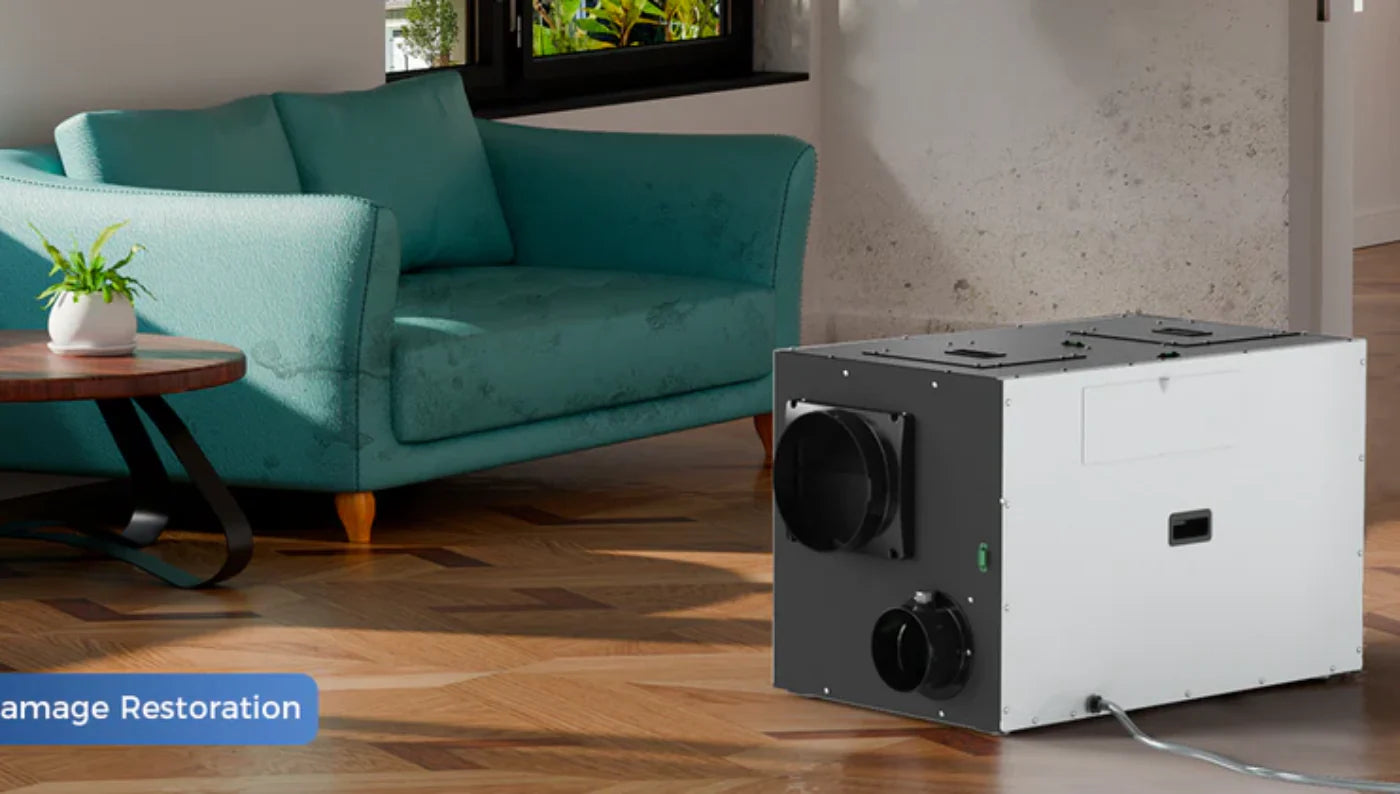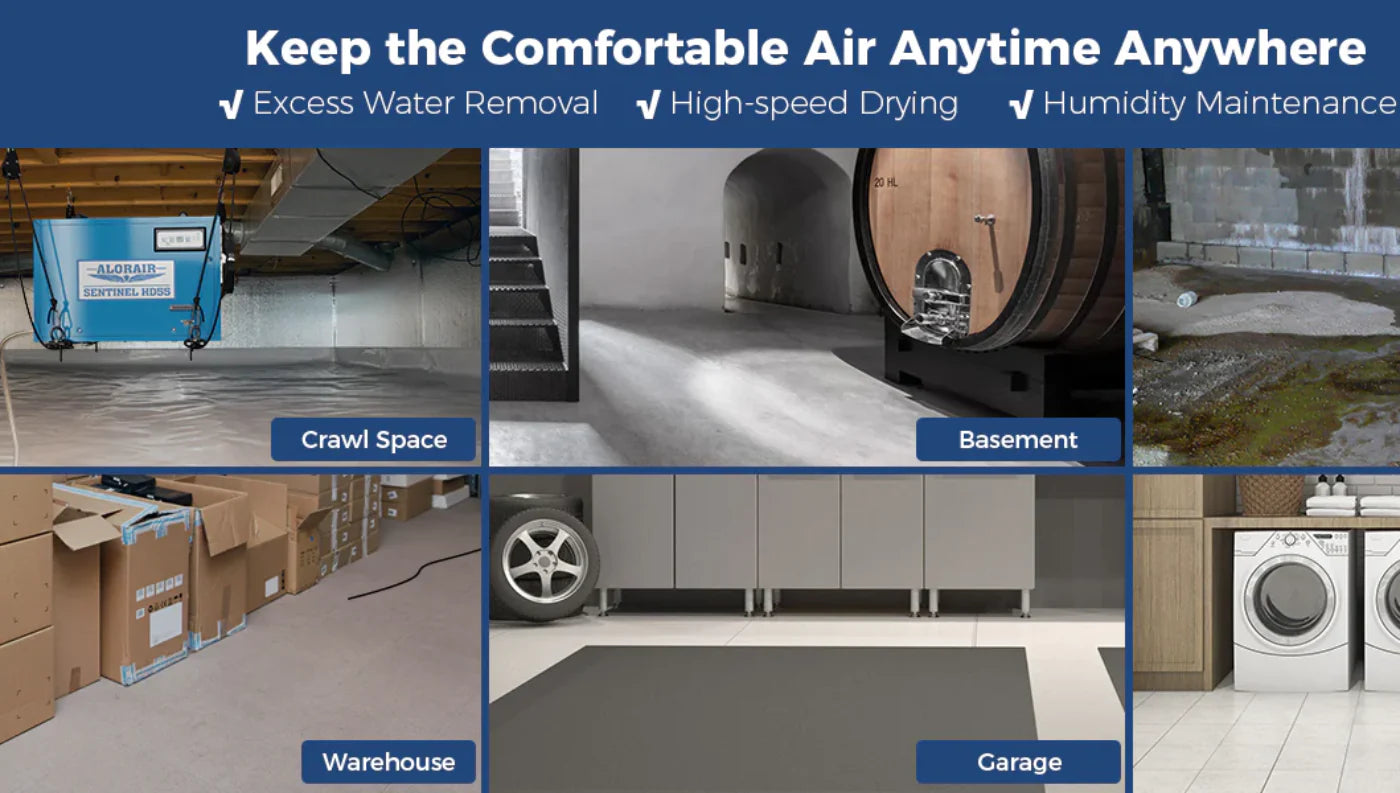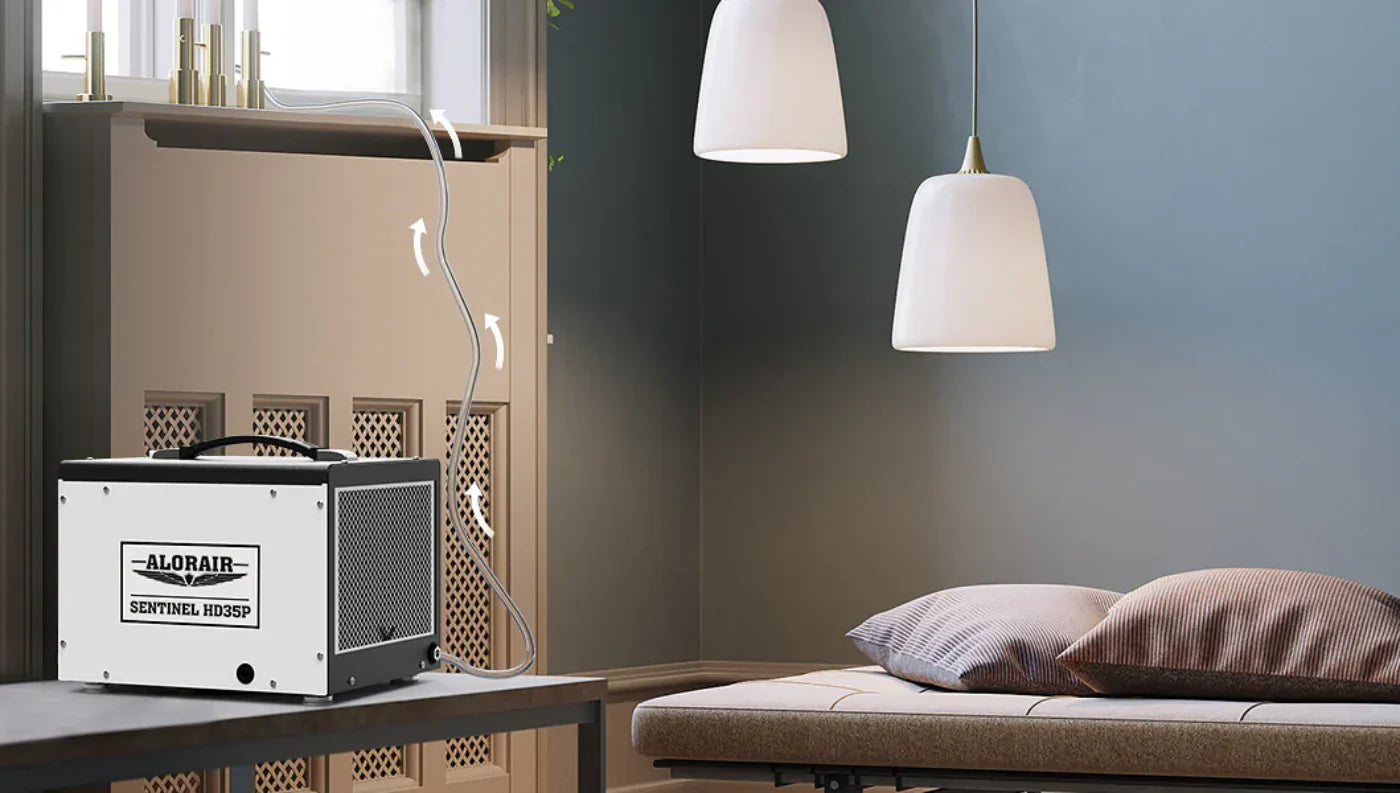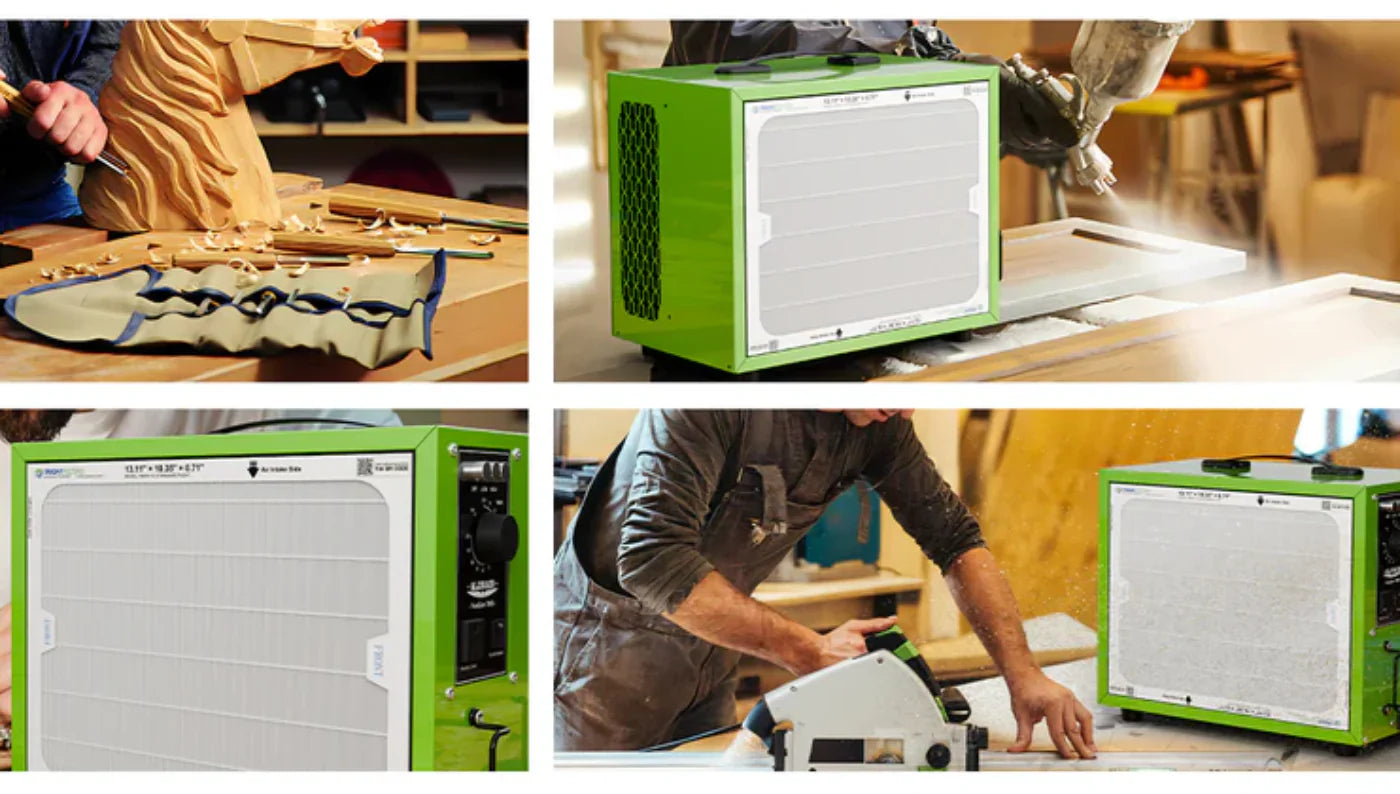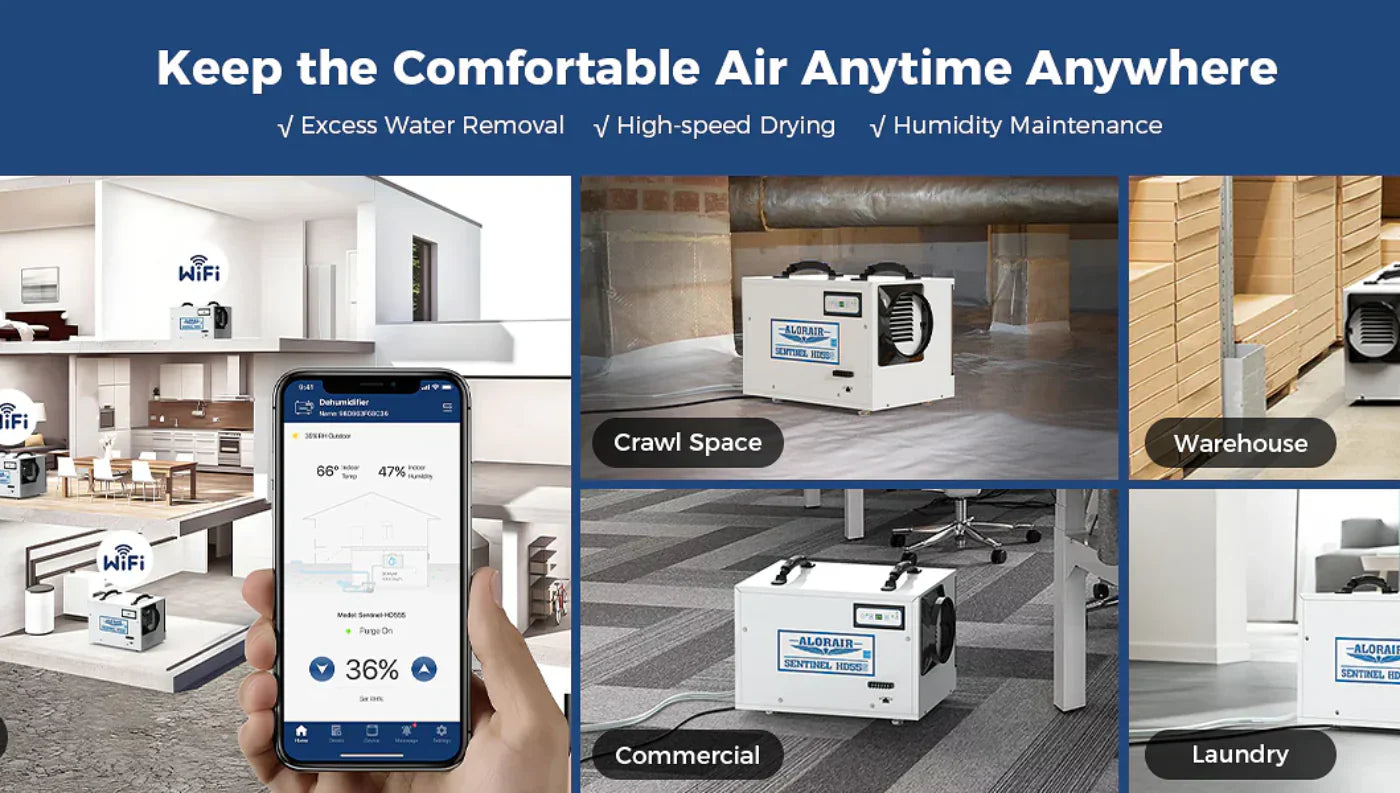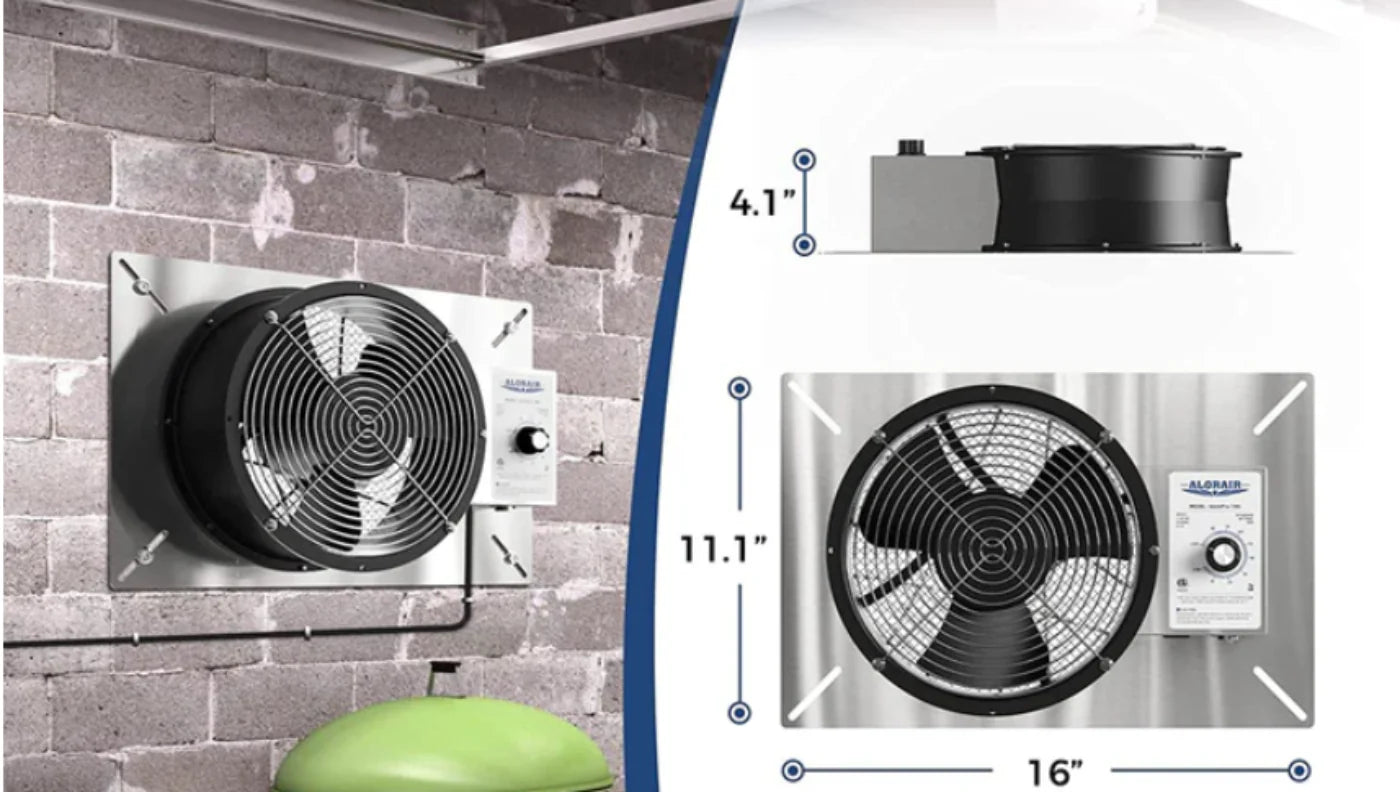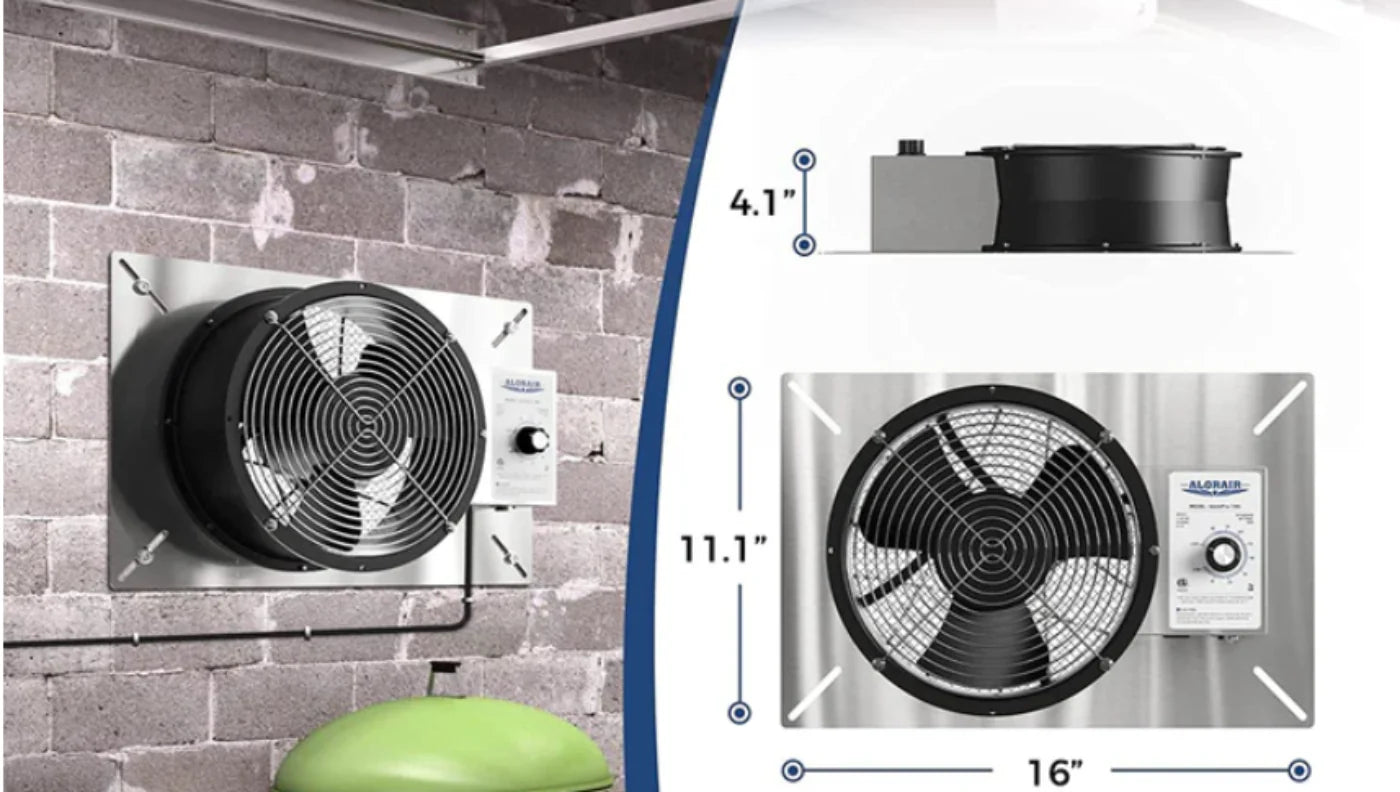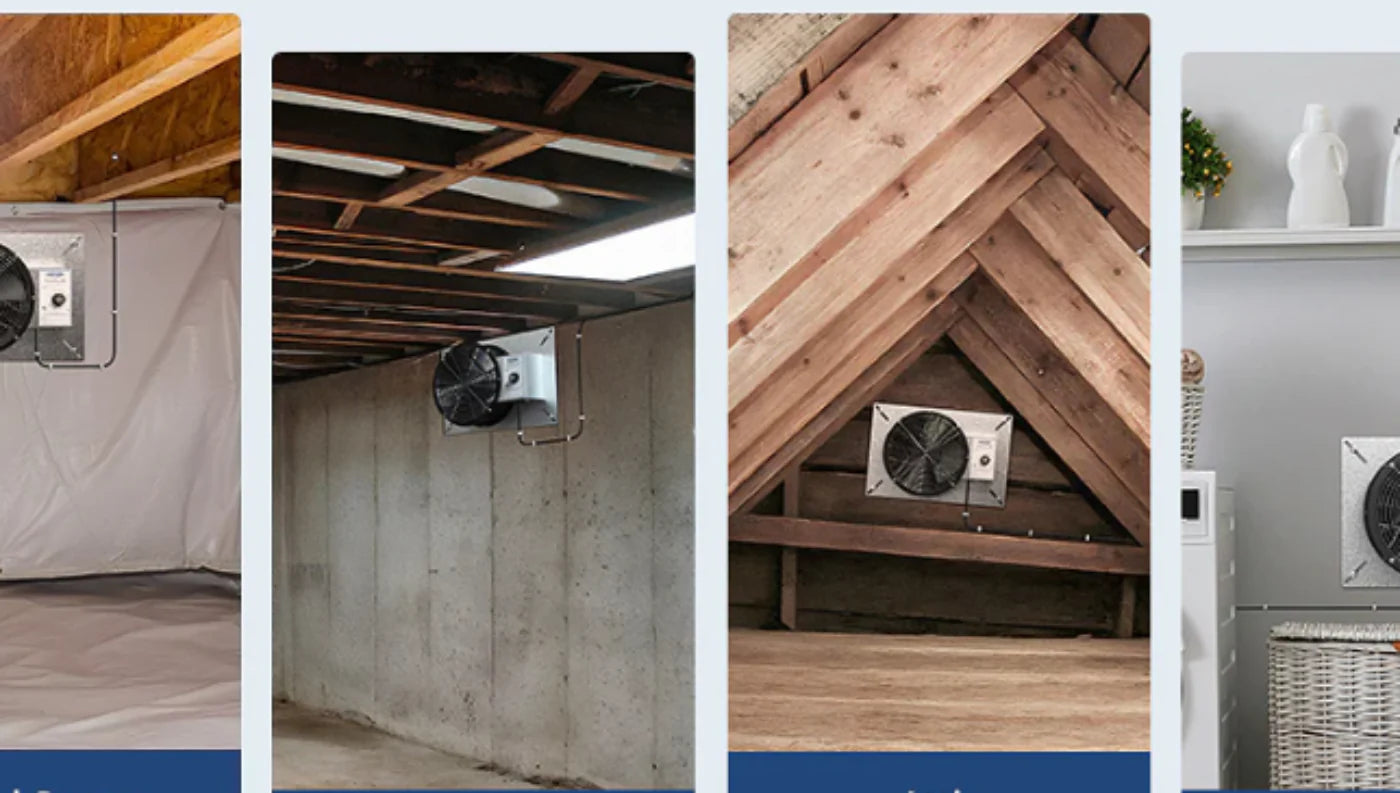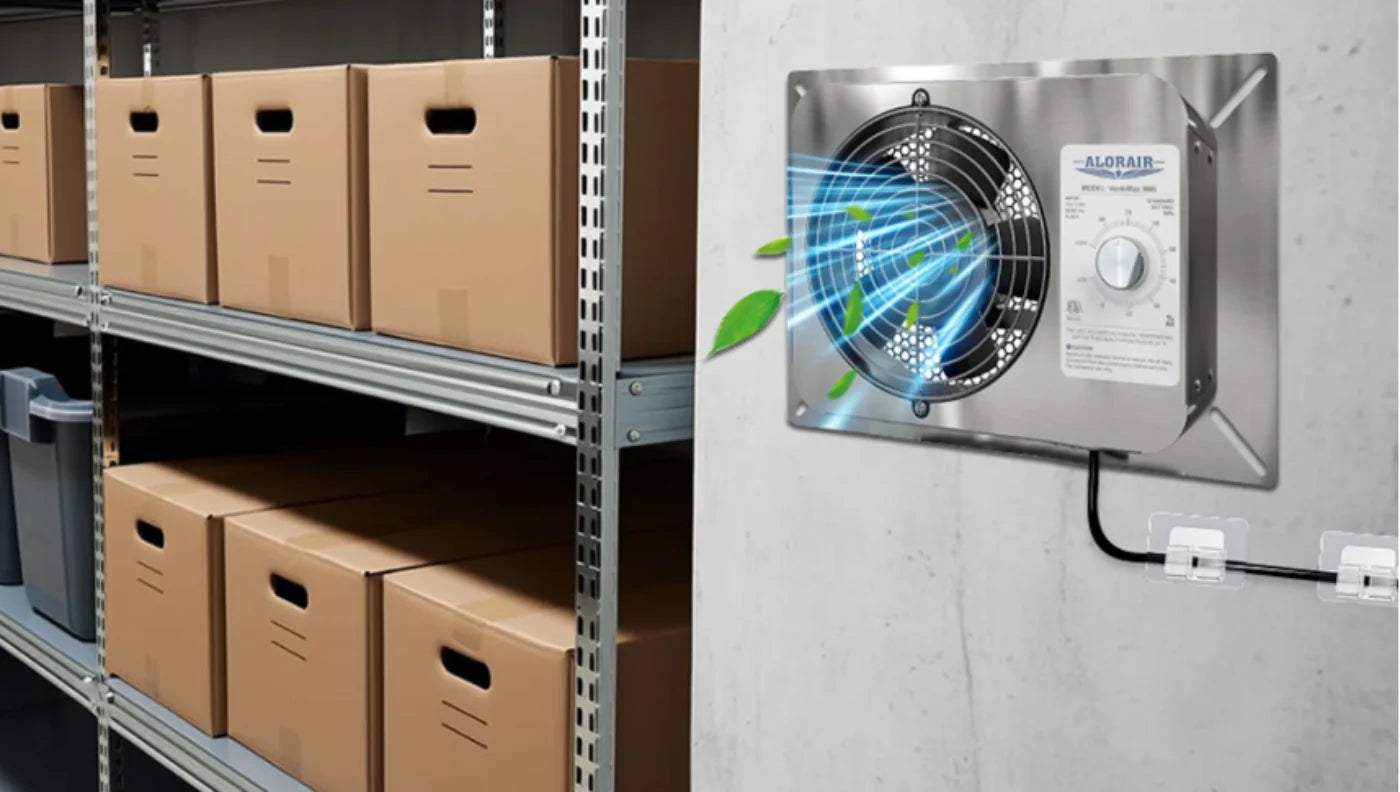Have you ever wondered, “Is water from dehumidifier good for plants? This question often pops up for those looking to save water and be more eco-friendly. In this post, we’ll look at whether dehumidifier water is good for watering plants, examining its benefits and risks.
What is Dehumidifier Water?
Dehumidifiers work by drawing moisture from the air, which then condenses into water. This process helps reduce humidity levels in your home, preventing mold and mildew growth. The water collected in this way is known as condensed water, and its chemical composition can vary. It may contain materials such as trace minerals, metal ions, and VOCs.
The Environmental Protection Agency warns that standing condensate can be a breeding ground for biological contaminants such as mold, mildew, and algae, particularly if the collection bucket is not cleaned frequently.
The water collected from dehumidifiers is classified as "greywater." greywater generally refers to the wastewater from taking showers, doing dishes, and washing laundry. Although dehumidifier water comes from air condensation rather than household activities, it still fits within this category.
While it is not safe for drinking due to potential contaminants like microorganisms and heavy metals, dehumidifier water can be repurposed for non-potable uses such as watering plants or flushing toilets.
According to one University of California study, greywater is perfectly acceptable to use to irrigate orchard trees and other landscape plants.
Benefits of Using Dehumidifier Water for Plants
Using recycled water for plants can have several advantages. It promotes water conservation, allowing you to reuse water that would otherwise be discarded. This can help you save money, especially if you live in an area with high water bills. Also, recycling dehumidifier water is an eco-friendly watering solution, reducing your environmental footprint by recycling water and minimizing waste.
This is especially useful during the hot summer months when plants require more frequent hydration. According to GWIG, greywater provides a reliable source of irrigation water that is not subject to watering restrictions.
Risks and Considerations
However, there are some risks to consider when using condensate for plant watering. The water may contain contaminants such as bacteria, mold, and metals. These impurities can harm your plants or soil over time. It's also important to recognize that in certain situations, the water from your dehumidifier might not be safe for plants, particularly if the unit hasn’t been properly cleaned or maintained.
Possible contaminants: Dehumidifier water can harbor bacteria, mold spores, and trace metals, which may harm plants. If the water is not properly filtered or purified, it could introduce pathogens to your plants.
Air quality impact: The quality of the air in your home directly affects the purity of the dehumidifier water. Poor indoor air quality can lead to more contaminants in the water. If your home is prone to dust or mold, these could be present in the water collected.
Not suitable for edible plants: Due to potential contaminants, it's generally not recommended to use dehumidifier water on edible plants, such as vegetables and herbs. The risk of harmful substances being absorbed by the plants and subsequently consumed raises health concerns.
pH levels: Dehumidifier water may have varying pH levels depending on the environment. Some plants are sensitive to pH changes, which can affect nutrient availability and overall plant health.
Steps to Make Dehumidifier Water Safe for Plants
To ensure the safety of your plants, you can take steps to filter and purify dehumidifier water. Using a water filtration system can remove potential contaminants, making the water safer for plant use. Along with filtering, water quality testing can identify any harmful substances before applying it to your plants. Here are the steps to make sure it’s safe to use:
Filter it:Use a water filter to remove larger particles and impurities from the water. An old Berkey is great for this, but a simple coffee filter or fine mesh strainer will work.
Purify it: Consider using a UV purifier or boiling the water to kill bacteria and mold spores. Boiling for at least one minute can effectively sterilize the water.
Test the water quality: Test the water for pH levels and contaminants to ensure it's safe for your plants. Home testing kits are available at garden centers and online, allowing you to check for harmful substances.
Store it properly:If you're collecting dehumidifier water, store it in a clean, airtight container to prevent contamination. Avoid letting it sit for long periods, as stagnant water can promote bacterial growth.
Plants that do well with greywater include: Bird of paradise, Melaleuca, Gardenia, Callistemon, Conifers, Hibiscus.
Many landscaping plants also benefit from graywater irrigation, including: Bermuda grass, Peach trees, Black-eyed Susans.
While some plants thrive on greywater, not all plants can tolerate water equally. When using recycled water for plants, it's recommended that you monitor them to see how they respond to it. Mixing it with regular tap water can also dilute any potential contaminants. And add additional minerals.
Alternative Uses for Dehumidifier Water
Dehumidifier water can also be used for various household tasks beyond plant watering. These alternative uses can further enhance your water conservation efforts and make the most out of the water collected by your dehumidifier. Here are other ways to recycle it around the house:
Cleaning: Use dehumidifier water for cleaning floors, windows, and outdoor surfaces. It can effectively remove dirt and grime without the need for additional cleaning products.
Flushing Toilets: Use it to flush toilets, conserving potable water. This is an excellent way to make use of the water without risking plant health.
Washing Cars: Mix dehumidifier water with car wash soap for an eco-friendly car wash. This helps reduce water waste while keeping your vehicle clean.
Choose High-Quality Crawl Space Dehumidifiers
Crawl space dehumidifiers are specifically designed to manage humidity levels in areas like basements and crawl spaces. These units help improve indoor air quality by reducing excess moisture, which can prevent mold growth and structural damage. Investing in a crawl space dehumidifier can be a smart move for maintaining a healthy home environment.
Features to look for in crawl space dehumidifiers:
Durability: Built to withstand harsh conditions, these units are durable and long-lasting, providing reliable performance.
High Capacity: They can handle large volumes of air, making them suitable for extensive crawl spaces, ensuring effective moisture control.
Automatic Operation: Many models feature automatic humidity sensors and continuous drainage options for hassle-free operation, allowing you to set it and forget it.
Quiet Operation: Modern units are designed to operate quietly, minimizing disruption in your home while effectively managing humidity levels.
One unit that fits the bill is the AlorAir Sentinel HD55S Commercial Basement/Crawl Space Dehumidifier. This unit can remove up to 55 pints of moisture per day at AHAM conditions, and up to 120 pints at saturation. It's suitable for areas up to 1,300 square feet, making it ideal for crawl spaces.
Alternately, AlorAir Sentinel HDi90 is a high-quality choice for larger spaces up to 2,600 square feet, providing effective moisture control without compromising on durability or convenience. It can remove up to 90 pints of moisture per day at AHAM conditions and up to 198 pints at saturation.
Our units are designed to operate effectively in low-temperature environments and can handle high moisture levels. Choosing a high-quality crawl space dehumidifier ensures durability and reliable performance, keeping your home’s humidity in check.
Optimizing Your Home Environment
We’ve answered the question "Is water from dehumidifier good for plants?” Using dehumidifier water for plants presents both benefits and risks. It is generally accepted that graywater is good for plants but should be filtered and come from a squeaky-clean
With proper purification and careful monitoring, dehumidifier water can be a viable option for non-edible plants. Check out our extensive range of crawlspace and basement dehumidifiers available at AlorAir Crawlspace to find the perfect solution for your needs and create a healthier living environment for you and your plants.




